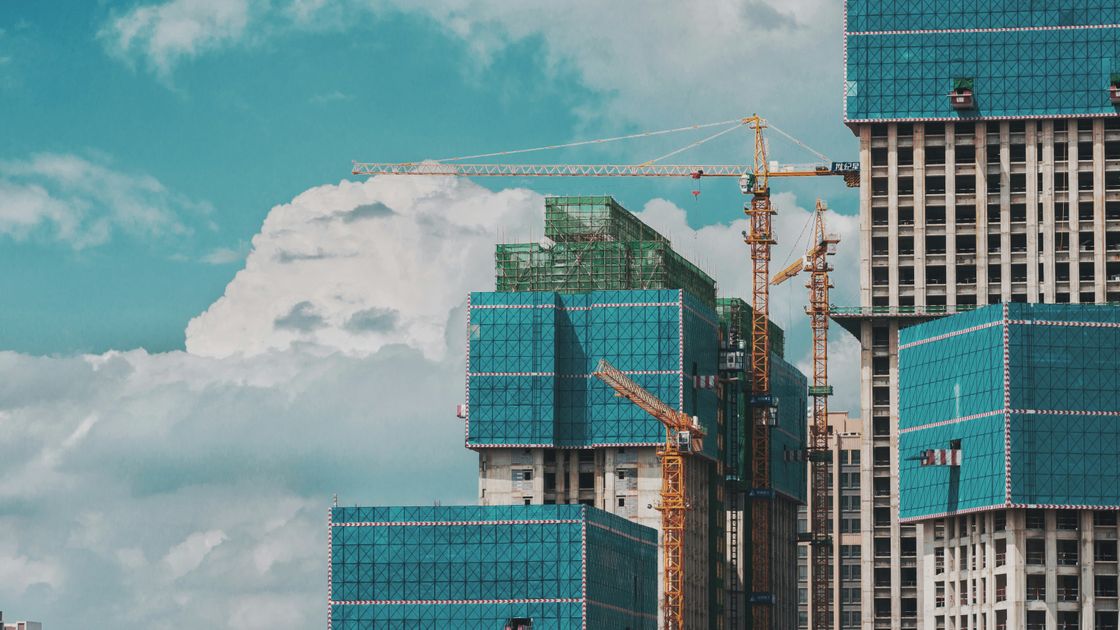Index
When you decide to buy a house and look for a property suited to your needs, you tend to look towards existing homes. In some cases, however, you may come across properties in the early stages of construction that could arouse interest; These could be homes under construction or projects still on paper.
But is it really worth buying a property under construction directly from the builder?
Index
- The advantages of buying a house under construction
- Risks and disadvantages of buying a house from the builder
- Protections for those buying a house under construction
- Builder's guarantee
- The property insurance policy
- Solidarity fund in case of bankruptcy
- Signing the contract
The advantages of buying a house under construction
There are certainly several advantages in buying a house still under construction, mainly related to flexibility and quality.
- It is possible to customize the property based on your preferences and needs, even in terms of the division of spaces; for example, you can opt for an open-plan living space instead of a division between the living room and the kitchen.
- All systems and technical elements must comply with current regulations and standards, and will therefore be of higher quality than in older homes; think for example of electrical systems with a higher energy class and consequently lower consumption.
- It is very unlikely that maintenance work will be necessary, at least in the first few years, except for construction errors from which the tenant can protect himself in advance.
Risks and disadvantages of buying a house from the builder
Similarly, there are some points that the buyer must pay attention to when choosing the purchase, to protect himself from any future problems, and some disadvantages to take into consideration.
- At the time of purchase it is necessary to pay a deposit to the builder which, in the event of his bankruptcy, can be put at risk if not properly protected.
- Typically, buying a new house has costs higher than buying an existing one – costs that, however, can often be amortized over time by saving on maintenance or renovation work, bills and so on.
- With a new house, the moment of delivery of the property can be delayed for various reasons and it is therefore necessary to have a certain flexibility on the entry date.
- In some cases, differences with the builder may arise on expectations for the construction of the house: often, in fact, the builder has already formed an idea of how to divide the spaces and create the house, an idea that may differ from that of the buyer, making negotiation necessary.
- Before 2005, the protections for the buyer were very limited, while with the Legislative Decree No. 122 issued in June of that year, they have been significantly implemented.
Protections for those who buy a house under construction
Those who buy a house under construction directly from the buyer are entitled to a series of protections that protect them from any material risks that may arise during construction.
Builder's guarantee
The project builder is obliged to provide a bank or insurance guarantee against all payments made before the deed that transfers ownership of the property. In fact, it guarantees the protection of all sums paid by the buyer: the builder is obliged to fulfill these payments and the financial institutions (the bank or insurance company with which the surety bond is stipulated) must ensure that this happens.
The transfer of the cost of the surety bond is borne by the builder and varies based on the risk; often, this expense is charged to the purchase price of the property.
The property insurance policy
The builder is responsible for 10 years for the property in the event of construction defects or any damage according to Article 1669 of the Civil Code. For this reason, he is required to take out an insurance policy on the property.
It is advisable, when purchasing the house, to ask to view the policy to be aware of what damages are covered by the insurance.
Solidarity fund in case of bankruptcy
In the event that the builder goes bankrupt and this damages the buyer, the latter has the right to access a solidarity guarantee fund established by the Ministry of Economy and Finance
Signing the contract
At the time of notarial deed is a type of preliminary contract which must include:
- buyer and builder information,
- cadastral data of the property,
- description of the technical and urban characteristics of the house,
- indication of any constraints or mortgages that may hang over the house,
- maximum construction times and delivery of the property,
- total price and payment methods,
- details of the request and the building permit,
- details of the guarantee.
Furthermore, it is necessary to verify that there are no mortgages in the name of third parties on the property and that the division of the assumption of the mortgage; these checks, as well as the writing of the contract, are the responsibility of the notary.

